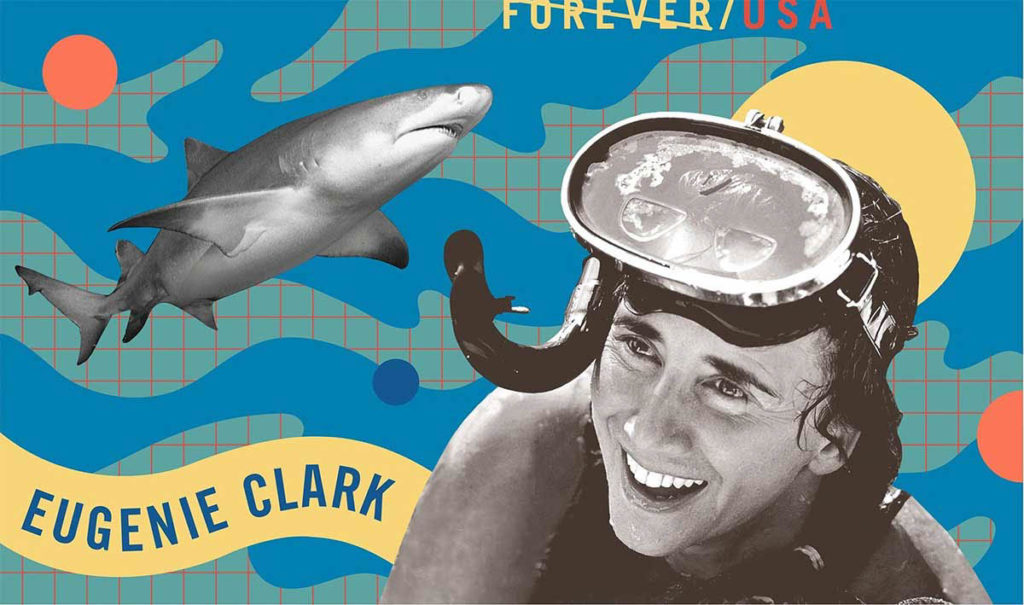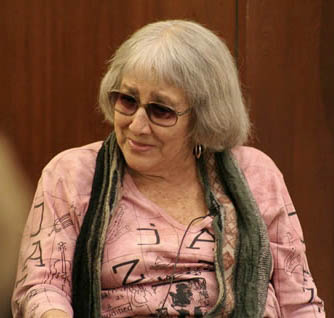Eugenie Clark, (born 1922) a trailblazing marine biologist who worked tirelessly to change public perception of sharks and preserve marine environments around the world, was honoured on May 4, 2022, on what would have been her 100th birthday, with a Forever stamp.

About Eugenie Clark
Eugenie Clark, also known as The Shark Lady, was an American ichthyologist known for her work on shark behaviour as well as her study of fish. Clark was a pioneer in the field of research scuba diving. Clark was not only regarded as an authority in marine biology, but she was also well-known and used her celebrity to promote marine conservation.
Clark was interested in marine science from a young age, and many of her school reports covered marine biology topics. Clark’s first visit to the New York Aquarium at Battery Park inspired her to return every Saturday after that, fascinated by marine animals. Clark was inspired to become an oceanographer by the work of naturalist William Beebe.
Eugenie Clark graduated from Hunter College with a Bachelor of Arts in Zoology (1942). She studied at the University of Michigan Biological Station during the summers, and prior to graduate school, she worked as a chemist for Celanese Corporation. Eugenie initially applied to Columbia University for graduate school, but her application was denied due to concerns that she would eventually choose to leave her scientific career to focus on raising children. Clark persevered, earning both a Master of Arts (1946) and a Doctorate of Zoology (1950) from New York University. Clark conducted research at the Scripps Institution of Oceanography in La Jolla, the American Museum of Natural History in New York, the Woods Hole Marine Biological Laboratory in Massachusetts, and the Lerner Marine Laboratory in Bimini during her graduate studies.
Read The Scuba News Article on Eugenie Clark
Clark conducted fish population studies in Guam, the Marshall Islands, the Palau Islands, the Northern Mariana Islands, and the Caroline Islands in 1949 as part of an Office of Naval Research program to conduct scientific research in Micronesia. Clark received a Fulbright Scholarship after completing her doctoral research to pursue ichthyological studies at the Marine Biological Station in Hurghada, Egypt, on the northern Red Sea Coast. These events were discussed in Clark’s first book, Lady with a Spear (1953), which was partially funded by a Eugenie Saxton Memorial Fellowship and a Breadloaf Writers’ Fellowship. The book was a smash hit.

Clark, wrote two books, Lady with a Spear (1953) and The Lady and the Sharks (1969), as well as over 175 scientific articles. Clark was a strong advocate for marine conservation, and many of her popular publications and public appearances focused on dispelling myths about shark behaviour and intelligence in order to prevent shark killing and encourage the preservation of marine environments. Publications from her body of work show that she was the first to train sharks to press targets and the first scientist to develop “test tube” babies in female fish.
Clark conducted over 70 submersible dives and led more than 200 field research expeditions around the world during her decades of research. She was involved in the creation of the first IMAX film and worked on 24 television specials.
Eugenie Clark, “The Shark Lady” died on February 25, 2015, at the age of 92, but her legacy will live on.





